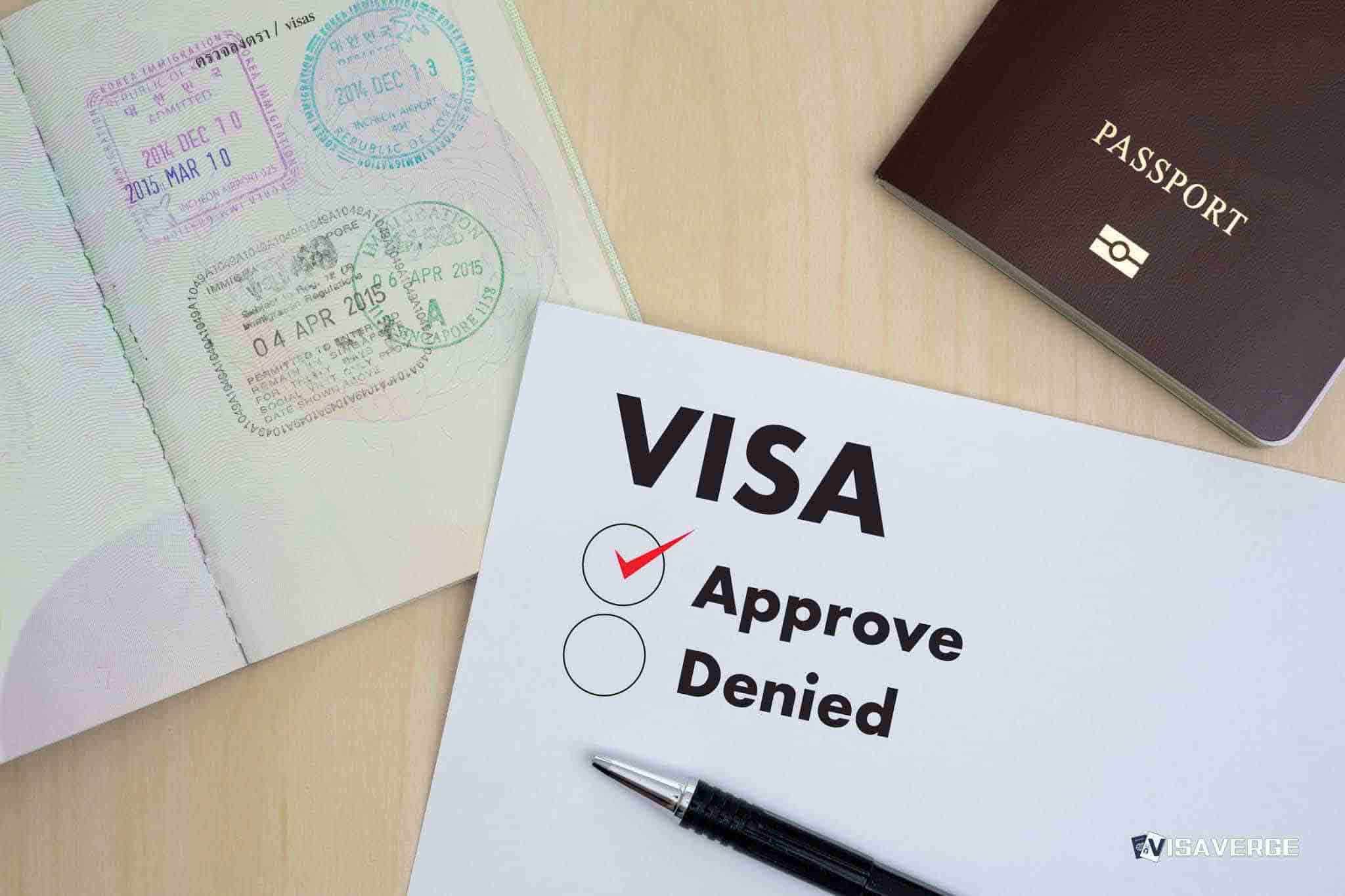Impact of a Minor Criminal Record on Your F-1 Visa Application
Navigating the complex terrain of immigration laws can be daunting, especially when it involves the sensitive issue of criminal records. If you’re aspiring to study in the United States and have a minor criminal record in your home country, you might be concerned about how this could impact your F-1 student visa application. Let’s break down the important points you need to know.
Understanding Visa Eligibility and Inadmissibility
When you apply for an F-1 visa, part of the process involves determining your eligibility to enter the U.S. The Immigration and Nationality Act specifies grounds of inadmissibility, which include various criminal offenses. But what does this mean for someone with a minor criminal record?
The key factor is the nature of the offense. Not all criminal records will automatically result in visa denial. The U.S. Department of State considers:
- The severity of the offense
- The number of offenses
- The time that has passed since the offense
- Rehabilitation efforts, if any
Minor Offenses and the Visa Application Process

For minor offenses, such as a single instance of a misdemeanor that did not result in serious harm to others, the impact on your F-1 visa application may be limited. However, honesty is paramount. You must disclose any criminal record on your visa application, irrespective of its severity or the time lapsed. Failing to do so could lead to a visa denial for misrepresentation.
Steps You Should Take
When preparing your F-1 visa application with a minor criminal record, consider these steps:
- Gather Documentation: Collect court records and any other official documentation related to your criminal record. You’ll need to present these during your visa interview.
- Legal Opinion: It may be helpful to get a legal opinion from an immigration attorney that explains the circumstances and context of your offense.
- Be Prepared to Explain: During your visa interview, be ready to talk about your criminal record candidly and explain what you’ve learned from the experience.
- Rehabilitation Proof: If you’ve taken any rehabilitative steps, bring proof of these efforts to your interview.
The Importance of Transparency
“Full disclosure is the way we can ensure that all the needed information is reviewed to make a fair determination,” says a consular officer. Transparency about your criminal record, accompanied by the necessary documentation, can help the visa officer evaluate your application fairly.
Seeking Professional Advice
If you’re unsure about how your criminal record might affect your application, seeking guidance from an immigration attorney can be invaluable. They can offer personalized advice based on your unique situation.
Additional Resources
For more detailed information on visa ineligibility and waivers, refer to the
Remember, each case is unique, and being aware of your own circumstances and getting the right advice is crucial to the success of your F-1 visa application. Keep in mind that transparency, preparation, and understanding the law are your best tools in navigating this process.
And there you have it! Navigating the tricky waters of minor criminal records and F-1 visa applications doesn’t have to be a daunting task. Just remember to be honest, gather the necessary documentation, and seek professional advice if needed. Oh, and don’t forget to check out visaverge.com for more in-depth information on this fascinating topic. Good luck, my tech-savvy friend, and may your F-1 visa dreams come true!
FAQ’s to know:
FAQ 1: What factors are considered when evaluating the impact of a minor criminal record on an F-1 visa application? Answer: When assessing the impact of a minor criminal record on an F-1 visa application, the U.S. Department of State considers several factors including the severity of the offense, the number of offenses, the time that has passed since the offense, and any rehabilitation efforts. These factors play a crucial role in determining visa eligibility, as minor offenses may not automatically result in visa denial.
FAQ 2: How does a minor criminal record affect the F-1 visa application process?
Answer: Having a minor criminal record, such as a single instance of a misdemeanor that didn’t cause serious harm to others, may have limited impact on your F-1 visa application. However, it’s essential to be honest and disclose your criminal record on the visa application, regardless of its severity or the time that has passed. Failure to disclose can lead to visa denial for misrepresentation.
FAQ 3: What steps should I take when preparing an F-1 visa application with a minor criminal record?
Answer: If you have a minor criminal record and are applying for an F-1 visa, consider these steps: 1. Gather documentation: Collect court records and any official documentation related to your criminal record to present during your visa interview. 2. Seek legal opinion: It can be helpful to consult an immigration attorney who can provide an opinion explaining the circumstances and context of your offense. 3. Be prepared to explain: During your visa interview, be ready to candidly discuss your criminal record and explain what you have learned from the experience. 4. Provide rehabilitation proof: If you have taken any rehabilitative steps, bring evidence of these efforts to your interview. Transparency and thoroughness are key to a fair evaluation of your application.
What did you learn? Answer below to know:
- True or False: A minor criminal offense can automatically result in the denial of an F-1 visa application.
- What are the key factors considered by the U.S. Department of State when assessing the impact of a criminal record on an F-1 visa application?
- What steps should an applicant with a minor criminal record take when preparing for their F-1 visa application? (Short answer)







